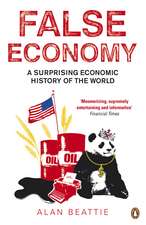Planning for Change: Industrial Policy and Japanese Economic Development 1945-1990
Autor James E. Vestalen Limba Engleză Paperback – 26 oct 1995
| Toate formatele și edițiile | Preț | Express |
|---|---|---|
| Paperback (1) | 182.47 lei 44-50 zile | |
| OUP OXFORD – 26 oct 1995 | 182.47 lei 44-50 zile | |
| Hardback (1) | 811.43 lei 44-50 zile | |
| Clarendon Press – 11 noi 1993 | 811.43 lei 44-50 zile |
Preț: 182.47 lei
Preț vechi: 237.14 lei
-23%
Puncte Express: 274
Preț estimativ în valută:
32.30€ • 37.52$ • 27.98£
32.30€ • 37.52$ • 27.98£
Carte tipărită la comandă
Livrare economică 05-11 martie
Preluare comenzi: 021 569.72.76
Specificații
ISBN-13: 9780198290278
ISBN-10: 0198290276
Pagini: 256
Ilustrații: line figures, tables
Dimensiuni: 156 x 234 x 15 mm
Greutate: 0.44 kg
Editura: OUP OXFORD
Colecția OUP Oxford
Locul publicării:Oxford, United Kingdom
ISBN-10: 0198290276
Pagini: 256
Ilustrații: line figures, tables
Dimensiuni: 156 x 234 x 15 mm
Greutate: 0.44 kg
Editura: OUP OXFORD
Colecția OUP Oxford
Locul publicării:Oxford, United Kingdom
Recenzii
extensively researched book ... Japan's industrial policy has been debated with too much passion and too little data, and this book is a conscientious effort to rectify the situation













